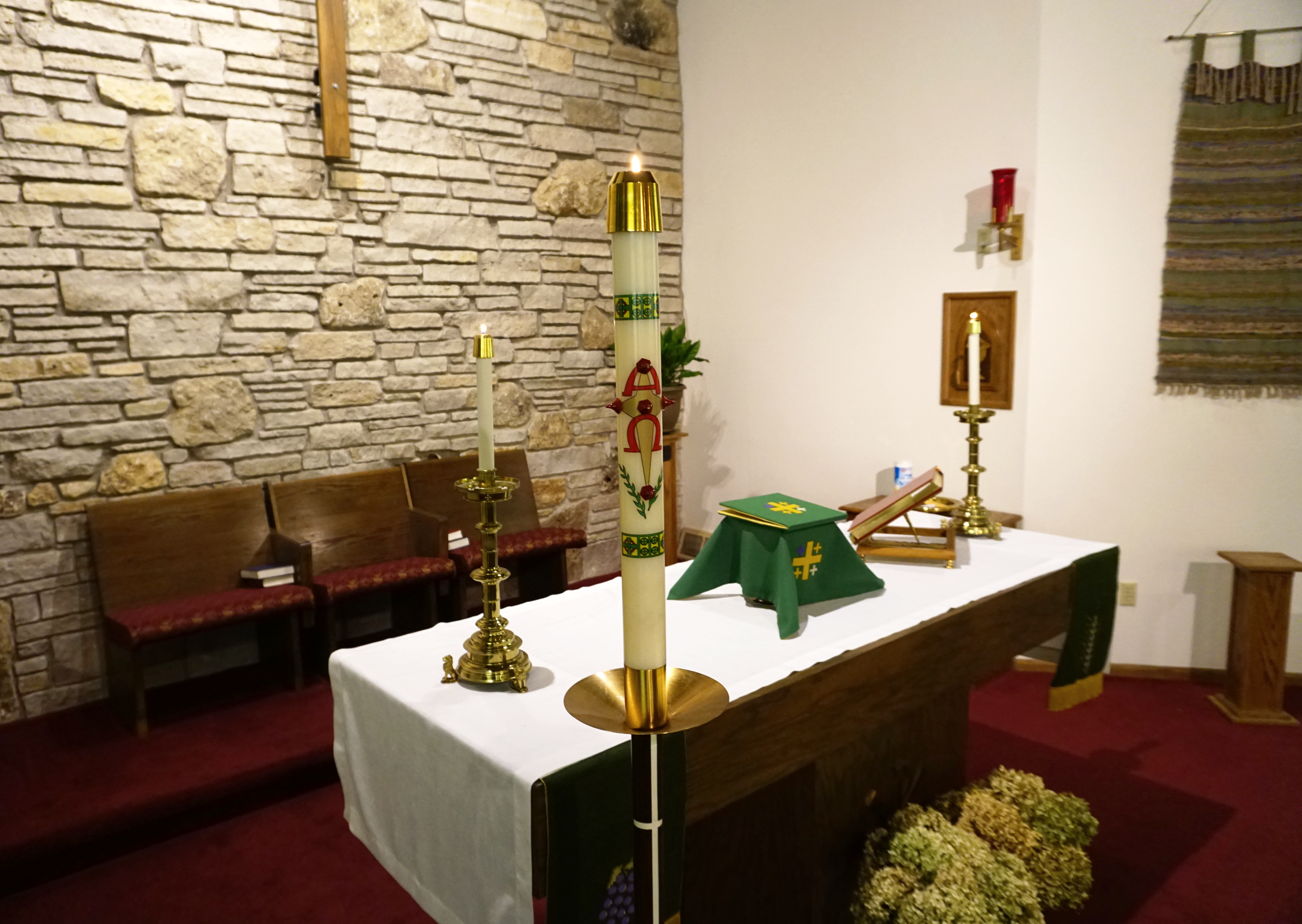
The Sacraments
"sacraments are outward and visible signs of inward and spiritual grace"
The Book of Common Prayer, p. 857
Holy Baptism and the Eucharist (or Holy Communion) are the two great sacraments given by Christ to his Church.
In the case of Baptism, the outward and visible sign is water, in which the person is baptized in the Name of the Father, and of the Son, and of the Holy Spirit; the inward and spiritual grace is union with Christ in his death and resurrection, birth into God’s family the Church, forgiveness of sins, and new life in the Holy Spirit.
In the case of the Eucharist, the outward and visible sign is bread and wine, given and received according to Christ’s command. The inward and spiritual grace is the Body and Blood of Christ given to his people, and received by faith.
In addition to these two, there are other spiritual markers in our journey of faith that can serve as means of grace.
Sacramental Rites include:
Confirmation: the adult affirmation of our baptismal vows
Reconciliation of a Penitent: private confession
Matrimony: Christian marriage
Holy Orders: ordination to the diaconate, priesthood, or episcopacy
Unction: anointing those who are sick or dying with holy oil
Learn more about the Sacramental Rites:
Confirmation
In the Episcopal church there are three vehicles for making an adult commitment to the church. confirmation is the sealing of the covenant created in baptism. Those being confirmed are known as confirmands. For adults, it is an affirmation of belief in God’s covenant with us. Confirmation is for those Baptized but who have not been confirmed in another faith tradition. Reception is for those who are Confirmed in another faith tradition and wish to join the Episcopal church. Reaffirmation is for those who seek to recommit themself to their faith journey in our Episcopal tradition. For those who have been away from church for a while or those who wish to strengthen and recommit to their faith.
Reconciliation of a Penitent: private confession
The church provides for confessions of sin by individual penitents, and for their absolution, pronounced by a bishop or priest. The BCP provides two forms of service for the Reconciliation of a Penitent (p. 447, 449). The Reconciliation of a Penitent is one of the sacramental rites of the church (p. 861). The secrecy of the confession is morally absolute for those who hear a private confession.
Matrimony: Christian marriage
Rite for holy matrimony in the Episcopal Church (BCP, p. 423). Marriage is a solemn public covenant between two persons in the presence of God. At least one of the couple must be a baptized Christian. Prior to the marriage, the couple sign a declaration of intention. It states that they hold marriage to be a sacramental union and covenant between the couple and God.
Holy Orders
The ordained ministries of bishops, priests (presbyters), and deacons. Canonical provisions concerning ordination to these three orders are equally applicable to men and women in the Episcopal Church.
Sacrament of Anointing, (Sacrament of the sick, Unction)
Sacramental use of oil as an outward sign of God's active presence for healing, initiation, or ordination. Anointing with oil by smearing or pouring may accompany prayers for healing (unction) and the laying on of hands in the rite for Ministration to the Sick (BCP, p. 453). The signing with the cross of the newly Baptized and the laying of hands and blessing with oil for healing and strengthening in body, mind and spirit.